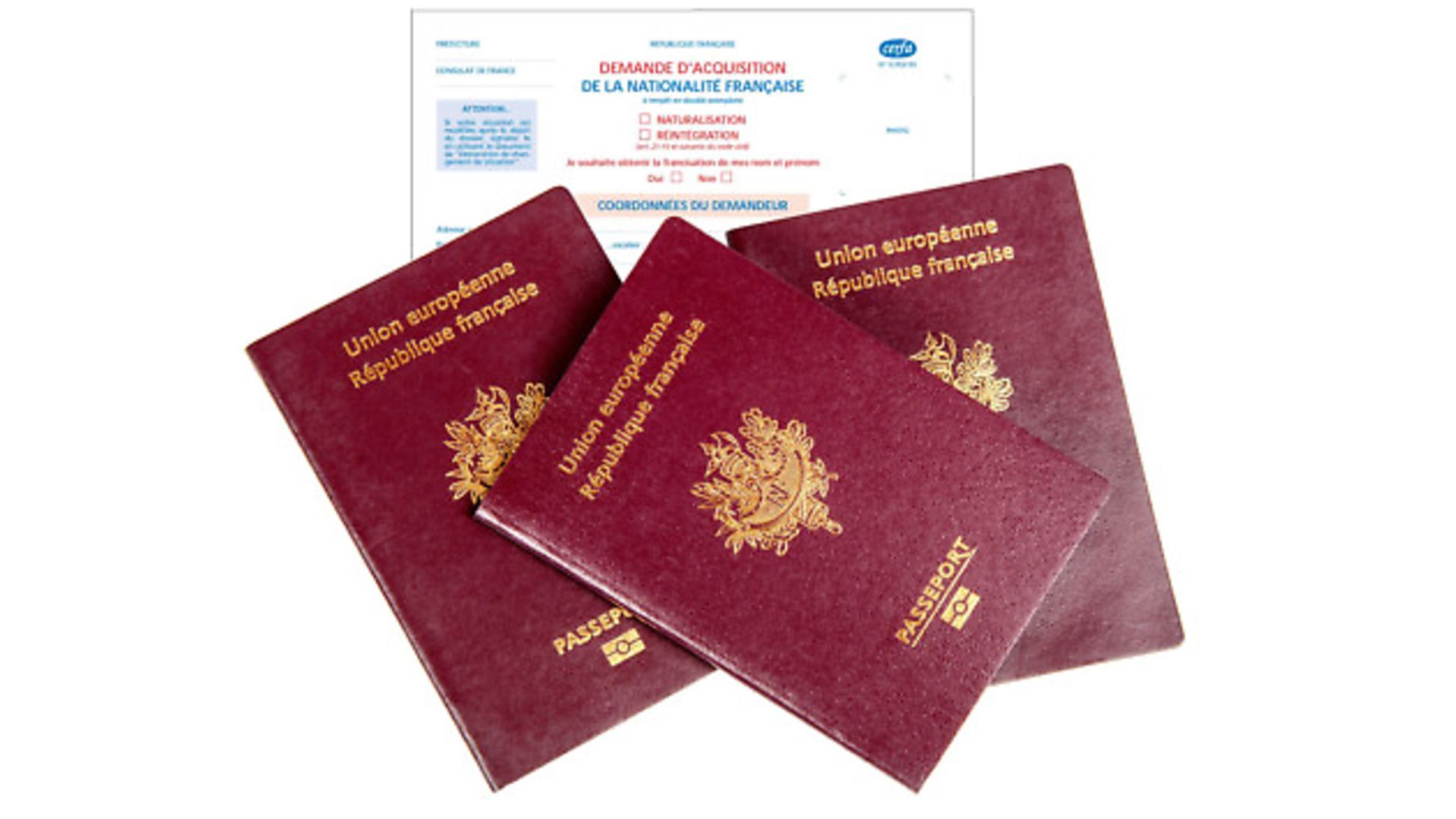Bonjour! If you are planning to become a French citizen in 2023, then you must be eager to know about the French citizenship application requirements. The French government recently updated their policies, making it important for prospective citizens to understand the latest regulations before starting their application process. In this blog post, we will cover all the necessary requirements and steps needed for a successful citizenship application in France in 2023. Whether you’re looking to move permanently to France or have lived there for several years and want to obtain citizenship, this post will provide you with all the information you need. So let’s get started!

Table of Contents
1. Language proficiency requirement for French citizenship application
According to the updated French Citizenship Application Requirements for 2023, one of the most important criteria for acquiring French citizenship is demonstrating a minimum proficiency in the French language. This language requirement, set at a minimum level of B1, is essential for anyone who is applying for French citizenship, regardless of their nationality or country of origin.
As part of the French citizenship application process, applicants will be required to demonstrate their written and oral proficiency in French by obtaining a French language certificate from a government-approved language center. This certificate will serve as a proof of the applicant’s ability to communicate effectively in the French language.
While demonstrating proficiency in French is a key requirement for acquiring French citizenship, applicants will also need to provide a range of essential documents to support their application. These documents may include a birth certificate, proof of residence, and proof of citizenship from their home country.
In addition to the language proficiency and document requirements, applicants will also need to demonstrate their links to France. This may include providing evidence of their French parentage or their residency and integration within French society.
There are different pathways for acquiring French citizenship, including residency-based options and those based on family connections. Regardless of the pathway chosen, applicants will need to meet the minimum lawful and continuous stay requirements in France to be eligible for citizenship.
Overall, the acquisition of French citizenship requires careful preparation and planning, with each applicant needing to fully understand the criteria and requirements set out by the French Government. By doing so, they can ensure that their application is processed efficiently, and they can move forward with their lives as French citizens.

2. Essential documents required for French citizenship application
In order to apply for French citizenship, certain essential documents must be provided to authorities. This can include a birth certificate, passport, and proof of residence in France for at least five years.
In addition, language proficiency must be demonstrated by passing either the DALF or TCF exam. This is to ensure that prospective citizens can communicate effectively in French and integrate into French society.
Verification of French parentage may also be required for some applicants. This can be proven through birth certificates or other official documents.
There are different pathways for acquiring French citizenship, including naturalization and the declaration process. The latter is available to individuals with at least one French parent or grandparent, as well as individuals with certain ties to French territories.
Prospective citizens should be aware of the minimum lawful and continuous stay requirement, and ensure that all necessary documents are obtained prior to starting the application process.
Updates on French citizenship application requirements for 2023 may become available as the year approaches, and individuals should stay informed to ensure they meet all necessary criteria.
For assistance with the application process, individuals can contact knowledgeable professionals or consult the official government website. With the right documentation and preparation, obtaining French citizenship is an achievable goal for those who meet the requirements.

3. Verification of French parentage for citizenship application
When applying for French citizenship, one of the key documents required is proof of French parentage. This means that the applicant must demonstrate that at least one of their parents is a French citizen. This can be done by providing a copy of their parent’s birth certificate or passport.
In some cases, the parent’s citizenship may not be obvious. For example, if the parent was born in France but has since become a citizen of another country, or if the parent’s citizenship is unknown, it may be necessary to provide additional documentation. This could include marriage certificates, naturalization documents, or other forms of identification.
It is important to note that simply being born in France does not automatically confer French citizenship to an individual. If the applicant was born in France but neither of their parents are French citizens, they will need to fulfill other requirements in order to be eligible for citizenship.
Verification of French parentage is just one of the many requirements that must be met in order to apply for French citizenship. Other requirements may include language proficiency, proof of residency, and a minimum period of lawful and continuous stay in the country.
Applying for French citizenship can be a long and complex process, but with the right documentation and preparation, it is possible to achieve. Those who are considering applying for French citizenship should consult with a legal professional or immigration expert to ensure that they meet all of the necessary requirements and are properly prepared for the application process.

4. Residency requirement for French citizenship application
One of the most crucial requirements for obtaining French citizenship is the residency requirement. According to French law, an individual must have been lawfully living in France for a specific period to be eligible for citizenship.
For most foreign nationals, the required length of stay in France is five years. During this time, the individual must have worked, earned an income, paid taxes, and acquired proficiency in the French language. They must also have a valid residence permit and submit proof of their French language skills.
In certain cases, the residency requirement may be reduced to two years. For instance, if the foreigner holds a Master’s degree or higher qualification from a French school or university, they may be eligible to apply for citizenship after two years of legal residence in France.
On the other hand, if an applicant’s parent(s) or grandparent(s) were French citizens, the residency requirement may be waived or reduced. In such cases, the applicant must submit documents to verify their French parentage.
It is important to note that the French residency requirement is not a one-time check for the five-year period. Rather, the individual must have a continuous, lawful stay in France during the required period. Any absences from France, even for short periods, may extend the residency requirement.
Foreign nationals who marry French citizens may also have the residency requirement waived or reduced. However, they must meet specific criteria, such as proving the authenticity of their relationship and their intention to live in France permanently.
Overall, meeting the residency requirement is a crucial step toward obtaining French citizenship. Prospective applicants should ensure they have all the necessary documents and meet the required criteria before starting the application process. Staying up-to-date with current updates on French citizenship application requirements for 2023 is also crucial.

5. Different pathways for acquiring French citizenship
The path to becoming a French citizen is possible through various routes, and the key to each is determining which pathway suits you best. This section focuses on the different ways you can acquire French citizenship, and which requirements you need to fulfill.
One way to acquire French citizenship is through family descent. If either of your parents are French citizens, you may be eligible for citizenship. However, there are certain conditions you must meet to qualify, such as showing proof of your French parentage through proper documentation.
Another option is naturalization. This involves proving that you have lived in France for at least five years, have a good understanding of the French language, and have integrated into French society. In addition, you should not have any criminal record or related conduct that could pose a threat to public order.
Another pathway is through birthright citizenship. If you were born in France to non-French parents but have lived in France most of your life or under French custody, you may be eligible for French citizenship. However, the exact criteria for this pathway vary depending on various factors such as your age, residency, and legal status.
Further, acquiring French citizenship through marriage is also possible. If you are married to a French citizen for a certain period of time, currently five years, you can also acquire citizenship by fulfilling certain requirements, such as knowing the French language and having a good integration record into French society.
Ultimately, whichever pathway you choose, it is essential to have a thorough understanding of the requirements, meet the eligibility criteria, and complete the application process in a timely and organized manner. A professional assessment by an immigration lawyer or French authorities can also help you navigate the process smoothly. Stay updated on current updates on French citizenship application requirements for 2023 so that you are equipped with the necessary knowledge and documentation.

6. Introduction to the declaration process for French citizenship application
For those who are eligible but do not want to apply for French citizenship through the naturalization process, there is an alternative pathway known as the declaration process. This allows individuals who can prove their French parentage or ancestry to obtain French citizenship.
To start the declaration process, applicants must provide all the necessary documents such as birth certificates, marriage certificates, and passports. They must also provide proof of their French parentage or ancestry, such as old family records or French birth certificates.
The advantage of the declaration process is that it is less time-consuming than naturalization and allows for a quicker path to French citizenship. In addition, it is a popular option for individuals who have already established their connection to France and wish to formalize it.
It is important to note that the declaration process has some specific requirements that applicants must meet, such as being 18 years old or older and having lawful and continuous residency in France for at least five years.
To ensure a successful application, applicants are strongly advised to seek professional legal advice prior to starting the declaration process. They can consult with immigration lawyers specializing in French citizenship applications to help them navigate through the requirements and procedures.
In conclusion, whether through naturalization or declaration, French citizenship entails meeting specific criteria and requirements. Understanding each pathway, the required documents, and the language proficiency requirements can help applicants start the application process with confidence and increase their chances of success.

7. Minimum lawful and continuous stay requirement for French citizenship
One of the key requirements for obtaining French citizenship is the minimum lawful and continuous stay in France. According to the rules laid out by the French government, applicants are required to have lived in France for a minimum of five years before they can apply for citizenship. However, there are certain exemptions for individuals who are married to French citizens or have French parents.
This requirement is in place to ensure that applicants have integrated into French society and are familiar with its culture and customs. Additionally, it is important for individuals to have a good understanding of the French language, as it is essential for daily communication and interacting with the local community.
To meet the minimum lawful and continuous stay requirement, applicants must provide evidence of their residency in France. This includes documents such as tax returns, utility bills, rental agreements, and proof of employment. The French government also conducts thorough background checks to verify an applicant’s criminal history and immigration status.
It is important to note that any gaps in residency or significant time spent outside of France can result in a delay or denial of citizenship application. Therefore, applicants are advised to maintain a consistent presence in France and abide by the country’s laws and regulations.
With the updated French citizenship application requirements for 2023, it is crucial for prospective applicants to familiarize themselves with the necessary documents and criteria. By fulfilling the minimum lawful and continuous stay requirement, applicants can move one step closer to obtaining French citizenship and enjoying the benefits that come with it.
In conclusion, the minimum lawful and continuous stay requirement is an essential aspect of the French citizenship application process. It ensures that applicants have integrated into French society, are familiar with the language and customs, and have a good understanding of the country’s laws and regulations. Prospective applicants should ensure they meet all criteria before applying for citizenship.

8. Starting the French citizenship application process
Applying for French citizenship is a detailed and time-consuming process. Before starting the application, applicants should research and understand the requirements thoroughly.
The first step in the process is to check the eligibility criteria. An individual must be at least 18 years old, have lived in France for five years, or be married to a French citizen for three years. Investors who do not intend to live in France permanently may also apply, but they must pass a language exam.
The language proficiency requirement is an essential aspect of the application process. Applicants must prove their ability to speak, read, and write in French, which is essential for integration into French society. The language exam can be taken at a recognized language school or institution, and applicants must pass it to proceed with the application.
Applicants must also gather the necessary documents, including a valid passport or photo ID, two signed copies of the application form in French, two recent passport photographs, proof of residence, and proof of language proficiency. The verification of French parentage is also required for some applicants.
Once the documents are ready, applicants must sign the Reception and Integration Contract, which outlines the expectations and obligations of becoming a French citizen. They must also attend an interview with a French administration representative who will assess their commitment to living in France and integrating into French society.
In conclusion, applicants who wish to apply for French citizenship must understand the eligibility criteria, acquire language proficiency, gather essential documents, sign the integration contract, and attend an interview. Adhering to these requirements will significantly increase the chances of a successful application. With thorough preparation and patience, applicants can embark on the path to acquiring French citizenship in 2023.

9. Alternative pathway: marrying a French citizen for citizenship
One of the most common ways for foreigners to acquire French citizenship is through marriage to a French citizen. To do so, the applicant must have been married to a French national for at least four years and have lived in France for a certain period of time.
Once the applicant submits their dossier with the necessary documents to prove the marriage, the application process takes about a year. However, it should be noted that some exceptions apply, such as the case of university students who can apply after two years of successful study.
It’s important to note that getting married does not automatically grant citizenship, and the process still involves a lot of paperwork and legal requirements. Additionally, the application may be denied if the authorities suspect that the marriage is not genuine, but rather a way to obtain citizenship.
It’s also worth mentioning that the French government continuously updates its citizenship requirements, including for those who acquire it through marriage. Therefore, it’s always recommended to stay informed of any changes to the process to ensure a successful application.
Overall, while marrying a French citizen can be a pathway to obtaining citizenship, it’s important to fully understand the legal requirements and stay updated on any changes to the process.

10. Current updates on French citizenship application requirements for 2023
The process for obtaining French citizenship has undergone some changes in 2023, simplifying the application procedure. As per the latest updates, the residence requirement for citizenship applications is a lawful and continuous stay of 5 years prior to application. However, there are exceptions – applicants can apply after four years of continuous residence in France or after five years if the spouses live together.
Language proficiency is another requirement for the French citizenship application. Applicants must prove that they have at least a basic understanding of the French language. Essential documents required for the citizenship application include a valid passport or other identification and proof of identity. Additionally, the key document to the application is proving that the applicant was either born in France or that one or both of their parents are French citizens.
For those seeking an alternative pathway to gain French citizenship, marrying a French citizen grants eligibility after four years of continuous residence. Another important change is the fee for citizenship applications, which is now €55 payable in tax stamps.
Starting the French citizenship application process is now more convenient, with no need to travel or physically submit the application file as it can be done entirely online. However, applicants will still need to undergo a verification process of French parentage and meet the minimum lawful and continuous stay requirement.
In summary, the requirements for French citizenship application have undergone significant changes in 2023, streamlining the application process and making it more accessible for foreigners. While there are still several requirements to meet, the simplified procedures and alternative pathways to citizenship make the process achievable.
Would you pass the French citizenship test?
Examples of test papers containing questions candidates are likely to be asked can be found as a Google Doc on Le Figaro website…..And no cheating!